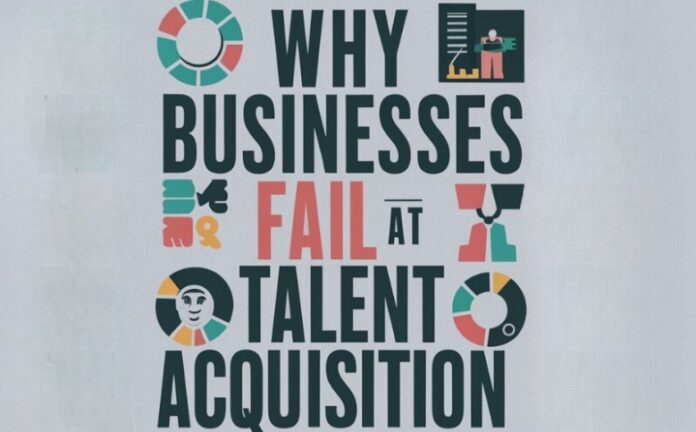Hiring the right talent can make or break a company. As someone who’s been through the ups and downs of the hiring process, I’ve seen firsthand how easy it is to stumble.
I was inspired to share insights on talent acquisition after reading about the latest career move of Jeff Smith Blackrock, a renowned industry leader.
With that said, let’s talk about some common pitfalls in talent acquisition and, more importantly, how to avoid them.
1. Ignoring Company Culture
I’ve seen it happen time and time again. You bring in someone who doesn’t share the same values as the rest of the team, and it’s like a pebble in your shoe – it just throws everything off. The team dynamic gets disrupted, morale takes a hit, and before you know it, all that amazing potential starts crumbling away.
It’s a delicate balance. Finding the right people who not only have the skills, but who also genuinely connect with your company’s mission and ethos. But when you get that right, it’s magical. The team clicks, the work flows, and you can practically feel the energy and enthusiasm bouncing off the walls.
What to do instead: Clearly define your company culture and ensure every hire aligns with it. Ask questions in interviews that reveal candidates’ values and work styles.
2. Rushing the Hiring Process
When companies are in a hurry to fill an open role, they sometimes take a few shortcuts. They might skip important steps like actually checking those references or doing a really deep dive in the interview process.
And that’s a shame because more often than not, it ends up backfiring. They end up hiring the wrong person for the job, and then it just creates more hassle and expense down the line.
I get the impulse – you want to get that position filled quickly, keep things moving. But it’s so important to slow down, do your due diligence, and make sure you’re bringing the right person on board.
Sure, it takes a little more time upfront, but it’s worth it to avoid the headache of a bad hire. Don’t cut corners when it comes to your team – your business will be better off in the long run if you take the time to do it right.
What to do instead: Take your time. Develop a structured hiring process that includes multiple interviews, practical assessments, and reference checks. It’s better to be slow and sure than fast and regretful.
3. Lack of Clear Job Descriptions
A vague job description is a recipe for disaster. It attracts the wrong candidates and sets unclear expectations. I’ve seen so many cases where the new hire quits within months because the job wasn’t what they expected.
What to do instead: Write detailed job descriptions that clearly outline responsibilities, required skills, and performance expectations. Be transparent about the role and what success looks like.
4. Overemphasis on Qualifications
Qualifications matter, but they’re not everything. I’ve seen talented individuals overlooked because they didn’t have a specific degree or certification. On the flip side, hiring someone based solely on their resume can be a big mistake.
What to do instead: Look beyond qualifications. Focus on skills, experience, and potential. Consider personality and cultural fit just as much as formal education and job history.
5. Poor Candidate Experience
A candidate’s experience during the hiring process reflects on your company. I’ve heard stories of candidates left in the dark for weeks, not knowing where they stand. This creates a negative impression and can lead to losing top talent.
What to do instead: Communicate clearly and regularly with candidates. Keep them informed about their application status and provide feedback, whether they get the job or not.
6. Not Leveraging Technology
In today’s digital age, failing to use technology in hiring is a big oversight. Many companies still rely on outdated methods, missing out on efficiency and broader reach.
What to do instead: Use applicant tracking systems (ATS), social media, and job boards. Leverage AI for screening resumes and scheduling interviews. Technology can streamline the process and help you find the right candidates faster.
7. Neglecting Onboarding
Hiring doesn’t end with a signed offer letter. Proper onboarding is crucial for integrating new hires into your team and setting them up for success. Skimping on this step can lead to confusion and disengagement.
What to do instead: Develop a comprehensive onboarding program. Include training, meet-and-greets with the team, and clear guidance on company processes. Make new hires feel welcome and prepared to hit the ground running.
8. Inadequate Compensation and Benefits
Competitive compensation and benefits are vital for attracting and retaining talent. If you’re not offering what’s standard in your industry, you’re likely to lose out to competitors.
What to do instead: Research industry standards and ensure your compensation packages are competitive. Don’t forget about benefits like health insurance, retirement plans, and professional development opportunities.
9. Failing to Build a Talent Pipeline
Relying on reactive hiring can leave you scrambling when a position opens up. It’s much more efficient to have a pool of potential candidates ready to go.
What to do instead: Build a talent pipeline by maintaining relationships with potential hires. Attend industry events, engage with candidates on social media, and keep track of top performers in your field.
10. Not Learning from Mistakes
Every hiring process has its hiccups. The key is to learn from them. I’ve seen businesses repeat the same mistakes because they never took the time to reflect and improve.
What to do instead: After every hire, review what went well and what didn’t. Gather feedback from everyone involved in the process, including the new hire. Use this information to refine and improve your hiring strategy.
Final Words
Hiring the right talent is challenging, but avoiding these common mistakes can make a huge difference. By focusing on culture, taking your time, leveraging technology, and continuously improving, you can build a strong team that drives your company forward.
Remember, hiring isn’t just about filling a position. It’s about finding the right person who will grow with your company and contribute to its success.












